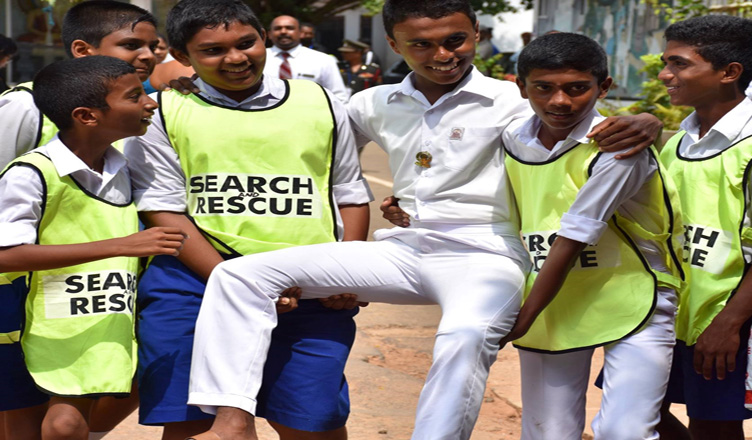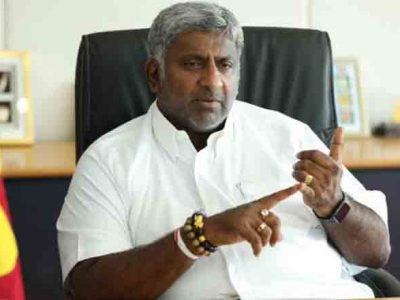(COLOMBO, LANKAPUVATH) –The 2004 Indian Ocean Tsunami claimed the lives of more than thirty-five thousand Sri Lankans and affected more than one million people across the island. It damaged a total of 183 schools, 18 vocational and industrial training institutes and 4 universities, affecting the studies of nearly 100,000 students across fourteen Coastal Districts.
To reduce the loss of lives associated with tsunamis, the Government of Japan is supporting a regional project to strengthen school preparedness for tsunamis in Asia and the Pacific. Implemented by UNDP in Country Offices across Asia and the Pacific region, 90 tsunami drills in 90 schools will be conducted across 18 countries including: Bangladesh, Cambodia, Fiji, Indonesia, Malaysia, Maldives, Myanmar, Pakistan, Papua New Guinea, Philippines, Samoa, Solomon Islands, Sri Lanka, Thailand, Timor Leste, Tonga, Vanuatu and Viet Nam.
In Sri Lanka, UNDP together with the Ministry of Disaster Management, Ministry of Education, Red Cross, Sri Lanka Navy and School development societies, will design, implement and coordinate a school simulation programme in five selected schools affected by the Tsunami in 2004. The first of these drills was held on 03 April 2018 at the Vidyaloka Madya Maha Vidyalaya in Galle with the participation of 2500 students.
Speaking about this initiative, UNDP Sri Lanka Deputy Country Director Ms. Lovita Ramguttee stated, “The schools’ response and evacuation plans are a critical aspect of disaster preparedness. We must learn from the past, and continue to build awareness and preparedness of both local communities and schools. I am grateful that with the support from the Government of Japan, school children in Sri Lanka will join others across the Asia Pacific region in learning how to remain safe during natural disasters.”
Addressing the impact of the drills, the Principal of the Vidyaloka Madya Maha Vidyalaya school in Galle, Mr. P.P.W. Senevirathna stated ”We are pleased to be part of this first drill. We hope that we can take the learnings from this drill and guide other schools in the Galle District”
School Preparedness programme is a full operational drill to test and evaluate the operational and decision-making readiness of Principals, staff, students and school committees in the event of a tsunami affecting Sri Lanka.
The exercise allows these schools to simulate on how to evacuate the students properly to identified safe locations as well as to simulate on School’s Disaster Management Plan developed.
Speaking on the role of the Ministry of Disaster Management, Additional Secretary and Director General of Disaster Management Centre (DMC), Dr. Amalanadan, stated, “The Ministry and the DMC is deeply committed to reduce the impact of disasters. Today’s awareness programme for over 2500 students and 100 teachers, helps them to be aware and stay prepared in the event of a tsunami.”
The regional project will contribute to the achievement of the Sendai Framework’s targets to reduce lives lost, numbers of people affected, and economic damage from natural and human-induced hazards. It also aims to achieve UNDP’s goal to help vulnerable regions to adapt to climate change by integrating disaster risk measures into national strategies.
The next Drill is scheduled to be held in May 2018.




